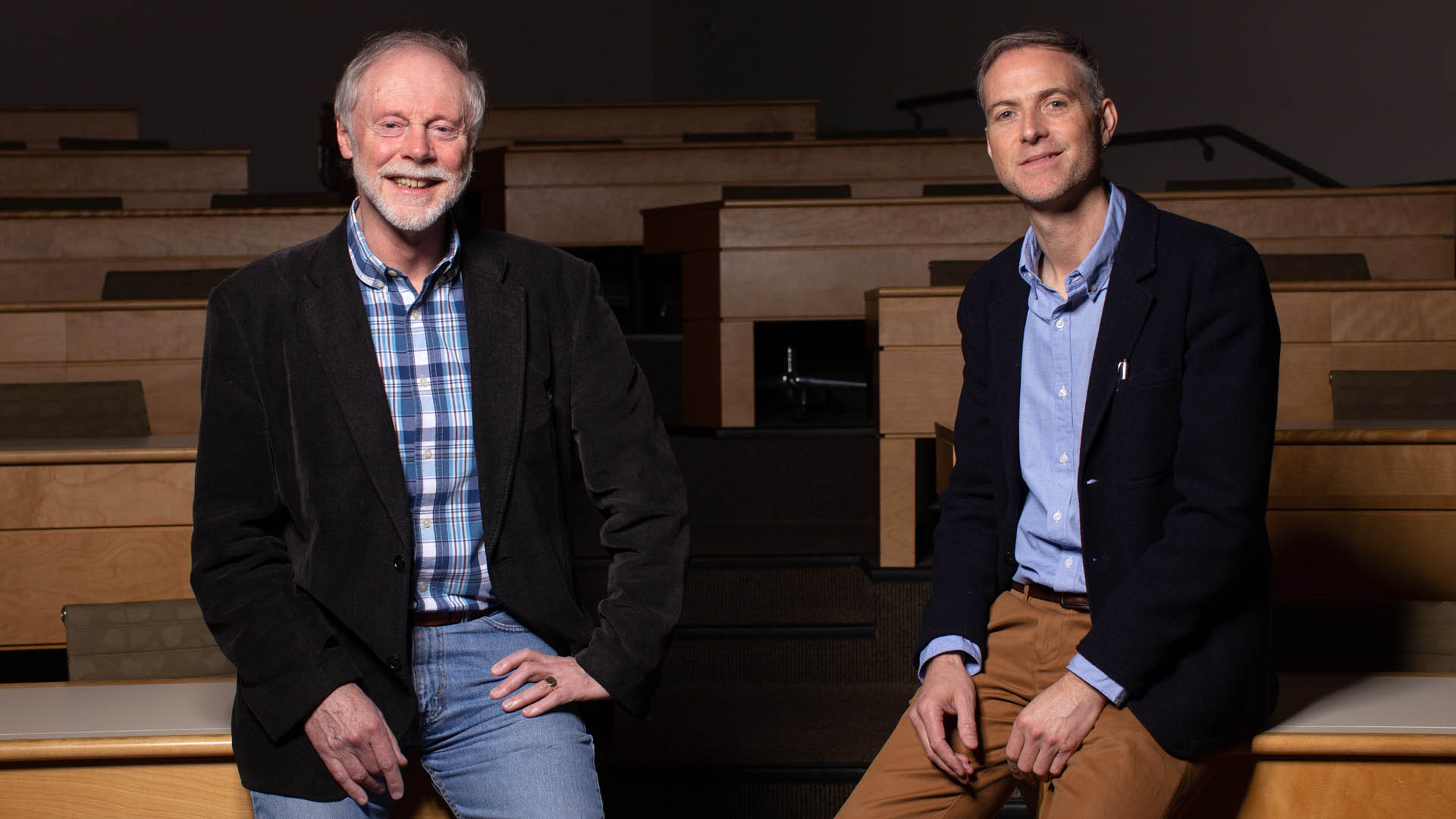During a pandemic, speedy research saves lives. Fortunately, the research community is facing the COVID-19 pandemic with new research tools—Cold Spring Harbor Laboratory’s two preprint servers, bioRxiv and medRxiv. Preprint servers are platforms to deposit scientific papers “as is,” before review by scientific peers. This is in contrast to “peer-reviewed” research journals, like Science or Nature, which publish a paper after they are reviewed. Traditional peer review adds weeks, months, or even years to the publication process. Working from home during the pandemic, the co-founders of the two preprint servers, John Inglis and Richard Sever, discuss their role in COVID-19 research over Skype.
Inglis explains that, “Preprints do not replace the peer review process. It simply uncouples two processes that up to now are being bound up in the process of publishing science in a journal, namely the dissemination of the information and the evaluation of that information. And that evaluation is still widely important, but there may be new and interesting ways of doing that.”
According to Sever, “Maybe a trite way to look at this is SARS versus SARS-2. I mean, there’s a famous statistic that when the SARS epidemic happened, many years ago, the vast majority of the papers about the epidemic came out after the epidemic was over. Come SARS2, COVID-19, we’re receiving tens of papers every day. I think in terms of what’s interesting to see is that the COVID-19 epidemic is basically showing the benefits of preprints writ large. Preprints allow you to get the science out more quickly, have it evaluated more quickly, and stimulate the work of other scientists to find cures. There’s now many, many scientists who are reading papers on bioRxiv and medRxiv and thinking, ‘Wow, you know, I’m reading this months before I would have read it before. This is fantastic. It’s stimulating my research. And guess what? When I have a paper next time, the first thing I’m gonna do is put it on bioRxiv and medRxiv.’”
The preprint servers are publishing data that are critical to battling the pandemic. COVID-19 originated in China, and Chinese researchers were the first to confront the virus and its effects on people.
Inglis reports, “We’re finding out that a very large proportion of papers that have been posted to medRxiv, in particular, have come directly from Chinese scientists who’ve been hugely involved in the front lines in the fight against the epidemic when it broke out. So they all have learned a lot of an epidemiological kind also in terms of treatment and demographics of susceptibility and the timeframes over which the virus spreads. So those are lessons which are being learned now in other parts of the world where the pandemic is taking hold.”
Already, before the pandemic, more biologists were learning to share their results through preprints. The COVID-19 pandemic is accelerating that trend, allowing research about the pandemic to be shared in almost real-time. Inglis believes, “There is a change in culture about how science is shared. It’s not so much about how science is published. What has been so fascinating about this journey over the last six years since bioRxiv began, is seeing how scientists think differently now that there is a tool available for them to share that work early and share it very, very widely. So that’s the culture change that is really overtaken our community.
Papers published by medRxiv and bioRxiv span a large range of fields. A landmark paper on the SARS-CoV-2-protein-human-protein “interaction map” provided dozens of leads for potential drug targets. Clinical trials were designed and started days after publication.
Inglis was pleased. “The paper that is currently the most discussed, is an effort by a hundred scientists who have worked together very intensely over the last few weeks to try to map all the proteins within the coronavirus and seeing how those proteins interact with human proteins. A massive effort, lots of different kinds of expertise brought together. And the consequences is a paper that essentially identifies a variety of targets for drug development and even mentions that some drugs are already known to interact with those human proteins. Drugs that are familiar in contexts like diabetes might be helpful in terms of treating the coronavirus, but I should emphasize that this is at this stage, this is biochemical association. This isn’t the demonstration of efficacy either in the lab or certainly not in people. But it’s a set of targets for the next wave of investigation and those investigations are going on right now.”
Sever appreciates the variety of fields involved in addressing the pandemic. “So you’ve got this incredible spectrum from the fundamental biology all the way through to the epidemiology. So that on one end, you have studies discerning the structure of key proteins involved in the virus. So this is sort of hardcore molecular biology and biochemistry as John talks about. And then at the other end of the spectrum you’ve got people releasing papers showing a new serological test, charting the epidemic in China and other parts of the world. So that’s informing new research into the development of drugs like the paper John mentioned. And then other papers on the epidemiology that are telling us how the virus is spreading. What the R0 is, which is critical for the health effort.”
Why the weird spelling? The very first preprint server, arXiv, was founded in 1991 to serve the physics community. The spelling is a bit of an inside joke—the X is a Greek Chi, which is used frequently as physics and math symbols. CSHL bioRxiv adopted the joke in its own name when it was founded in 2013. By 2019, when medRxiv was founded, there were a number of topic-specific Rxiv’s.
Written by: Eliene Augenbraun, Creative Director | publicaffairs@cshl.edu | 516-367-8455
